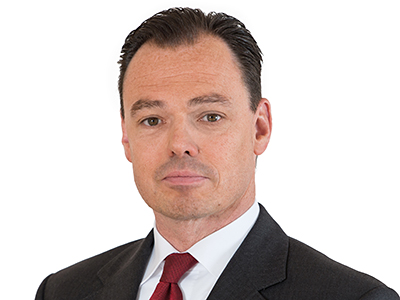Formycon and Janssen Biotech put EU SPC waiver to the test in Munich
Despite the 2019 amendment to the EU regulation for SPCs, German pharmaceutical company Formycon may not yet produce a biosimilar of drug Stelara in Germany for export. The Regional Court Munich issued a preliminary injunction to this effect, which upheld the arguments of claimant Janssen Biotech.
26 October 2023 by Konstanze Richter
The Regional Court Munich has handed down a preliminary injunction against Formycon, after the pharmaceutical company announced its intention to launch a biosimilar of drug Stelara following the expiry of its patent and related SPC. Claimant Janssen Biotech argued that the defendant needed to produce a relevant marketing authorisation before it could begin distribution upon the patent’s expiry.
In favour of Janssen Biotech
But the judges reached the decision due to finding a lack of marketing authorisation number for the biosimilar in a third country outside the EU (case ID: 21 O 12020/23). This is one of the first rulings in which a court has applied the 2019 amendment to the SPC regulation. In the future, this could play a major role when it comes to biosimilars entering markets in which the SPC has no effect.
The dispute, between Formycon and Janssen Biotech, concerns the German SPC DE 12 2009 000 025.7, which is based on basic patent EP 1 309 692 B1. The SPC, which protects drug Stelara, expires on 20 July 2024. Janssen Biotech, a Johnson & Johnson subsidiary, produces and distributes the drug. Its active ingredient, the monoclonal antibody ustekinumab, is used to treat psoriasis, psoriatic arthritis, ulcerative colitis and Crohn’s disease and is one of the global top-selling drugs. In 2022, according to Statista, its sales came to $9.7 billion.
Producing for export
German pharma company Formycon has developed FYB202, a biosimilar of Stelara, which it intends to manufacture in Germany. Although the current SPC is still valid, the production of an imitation product is permitted, under certain conditions, within the EU even before patent protection expires. This is according to regulation EC 2019/933, which since 2019 has supplemented the previous SPC regulation (EC/469/2009).
The manufacturing waiver applies, for example, if a generic or biosimilar drug is destined for export to third countries outside the EU where the SPC protection does not exist.
In addition, a pharmaceutical manufacturer may start producing generics and biosimilars of a drug still under protection six months before the SPC expires, even within the EU. This is to ensure it has sufficient quantities of the product available for sale on the first day after the protection period expires.
Strengthen competition
Before the EU introduced the regulation in 2019, generic manufacturers based in the trade bloc were at a disadvantage compared to suppliers from third countries. The latter could not only produce and distribute their products in third countries where the SPC is not effective, but also swarm the European markets with ready-to-go products on the first day after the patent protection expired.
On the other hand, their EU competitors could only begin production upon the patent’s expiry. EC 2019/933 aims to boost the European generic and biosimilar industry, and to enhance its competitiveness in relation to third-country competitors and other markets.
Reference number missing
Formycon intends to produce the biosimilar FYB202 in Germany in order to export it to third countries and to enter the EU market immediately following the SPC’s expiry. The company notified SPC holder Janssen Biotech, as required by the EU regulation. For the distribution of the biosimilar, Formycon signed a licensing deal with Fresenius Kabi in February 2023.

Thomas Musmann
According to the manufacturing waiver, the Munich biotech company needs a marketing authorisation for at least one third country in which the SPC does not apply in order to produce the biosimilar for export.
However, as yet Formycon has provided no such authorisation number. According to the claimant, the defendant should have supplied this upon notification of the planned production.
Formycon maintains confidentiality
Formycon argued that, to start production for export, it is sufficient to communicate the marketing authorisation number for a third country as soon as it becomes available. The defendant claimed that authorisations, especially for biosimilars, and thus the allocation of a number, often take time.
Formycon also rejected the request to instead name the third country for which it is planning production. It claimed this would mean the disclosure of distribution channels, which are confidential. However, the Munich court was of the same opinion as the claimant. It issued a preliminary injunction, which now prohibits Formycon from producing FYB202 in Germany for export.

Marc Holtorf
From Europe and the US
An international team led by Düsseldorf-based Rospatt Osten Pross partner Thomas Musmann represented claimant Janssen Biotech, which is a subsidiary of Johnson & Johnson. The firm has a long-standing client relationship with the pharma company.
It is also frequently active for Johnson & Johnson subsidiaries, such as its recent work for AMO in the dispute against Alcon. The parties have since settled the dispute. For the current case, Rospatt Osten Pross teamed up with Latham & Watkins, Carpmaels & Ransford and Hoyng ROKH Monegier. All advise the client across the US, the UK and in the Netherlands.
Formycon and its German company FYB202 Project relied on a team led by IP partner Marc Holtorf from Pinsent Masons. The firm often advises pharma clients, in particular generic manufacturers like Accord.
This was the first time Pinsent Masons has acted for the client in the German courts, with the contact arising through the firm’s Paris IP practice.
For Janssen Biotech
Rospatt Osten Pross (Düsseldorf): Thomas Musmann, Markus Lenßen (partners); associate: Tabea Schäfer
Latham & Watkins (San Francisco): Roger Chin, Michael Morin (both partners)
Carpmaels & Ransford (London): Camilla Balleny, David Wilson (both partners)
Hoyng ROKH Monegier (Amsterdam): Peter van Schijndel (partner)
For Formycon/FYB202 Project
Pinsent Masons (Munich): Marc Holtorf (partner), Julia Traumann (counsel); associates: Christina Miller, Katharina Nolte
Regional Court Munich, 21st chamber
Georg Werner (presiding judge)